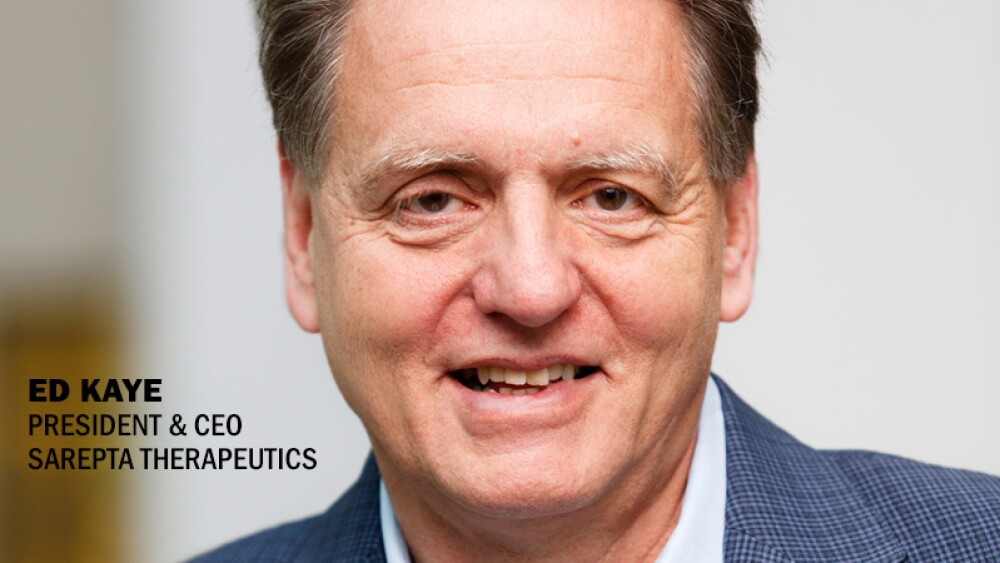August 19, 2016
By Mark Terry, BioSpace.com Breaking News Staff
The saga concerning Cambridge, Massachusetts-based Sarepta Therapeutics ’ eteplirsen for Duchenne Muscular Dystrophy (DMD) continues, even if anecdotally.
DMD is a muscle wasting disease caused by mutations in the dystrophin gene, which results in insufficient levels of the dystrophin protein. It is a progressive disease that usually causes death in early adulthood, with serious complications that include heart or respiratory-related problems. It mostly affects boys, about 1 in every 3,500 to 5,000 male children.
In January, the FDA was scheduled to review Sarepta’s New Drug Application (NDA) for eteplirsen, but postponed it because of a pending snowstorm on the east coast. After several dramatic public hearings by the FDA, 109 members of Congress sending a letter to the FDA urging it to accelerate approval of any DMD drug, and a public letter urging approval signed by 36 DMD experts, the FDA delayed final approval.
In May, the FDA reported it would miss the May 26 deadline to make a decision, and in June it requested additional data from the company.
Overall, it appears that eteplirsen has at least some positive effect, particularly in light of the fact there are no other treatments. The primary problem appears to be the size of the trial and lack of a control group. The drug was only studied in 12 boys. The FDA has expressed concern over the so-called placebo effect, which is to say, that because of the nature of the disease and how the drug’s efficacy is evaluated—largely based on the results of a six-minute walk test—it can be difficult to determine how much effect the drug actually has. How much effect is the patient’s and parent’s support and belief in the drug having?
In short, the FDA seems concerned that Sarepta’s clinical trial and science doesn’t meet the standards other drugs have to meet in order to be approved. The FDA is not necessarily saying the drug doesn’t work, just that it hasn’t been proven in a way that meets the bar set by the FDA.
So today’s story in the Boston Business Journal by Don Seiffert actually does nothing to alleviate that concern. Seiffert interviewed five of the parents of the boys in the trial, asking them what they thought of the placebo effect and how big a role it played. They said it didn’t play any role.
It’s important for readers to understand how emotional an issue this is. Boys with the disease typically die in their early twenties. DMD is a brutal, progressive disease in which the boys lose muscle, physical abilities, and it affects various organ systems, including heart and lungs. The muscle wasting can also lead to falls and broken bones and other injuries.
Bill and Kimberly Procko, whose 12-year-old son, Evan, is on the trial, argue that it isn’t possible for the placebo effect to explain the benefits Evan has received from the drug. Seiffert writes, “In Evan’s case, Kimberly Procko argues that there is no placebo effect because Evan himself doesn’t believe the drug works very well. The Florida resident explains that as the youngest of the 12 boys in the trial, the full ramifications of Evan’s disease haven’t been explained to him.”
They also note that there have been improvements, and anecdotally at least, that would seem to be completely true. A few months after receiving the drug, gastrointestinal problems got better. Cases of falling decreased significantly. A common symptom of the disease is clenching of the muscles at night, and those also decreased. And even though he broke two bones, neither forced him into a wheelchair permanently. Another boy in the trial, Cole Eichelberg, also recovered from a bone fracture.
Another of the parents, Jenn McNary, has two sons with DMD. The younger boy, Max, was in the trial. Austin, the older boy, was not. She also did not know that Max was receiving the drug, as opposed to a placebo, although, in fact, all boys in the trial received the drug. McNary says she saw improvement in Max by the fourth or fifth month.
“He was walking more often. He wouldn’t get as tired,” she told Seiffert. “He had always been using a wheelchair in the airport, but I have a picture of him (from that time) pushing his sister in a wheelchair.”
And like the other, Terri Elseworth, whose son Billy is one of the oldest boys in the trial, was asked about the placebo effect, she said, “Absolutely not.”
However, Seiffert writes, “She did not notice any major difference in Billy’s muscle function for more than a year until she saw him jump off a step and start opening jars. But she also contends that it’s virtually impossible that a placebo effect could be responsible for the fact that 10 out of 12 boys in the trial are still walking.”
Although emotionally persuasive, and that has played a significant factor in the Sarepta trials story, it’s hard to say whether it will—or even should—play a role in the FDA’s decision.





